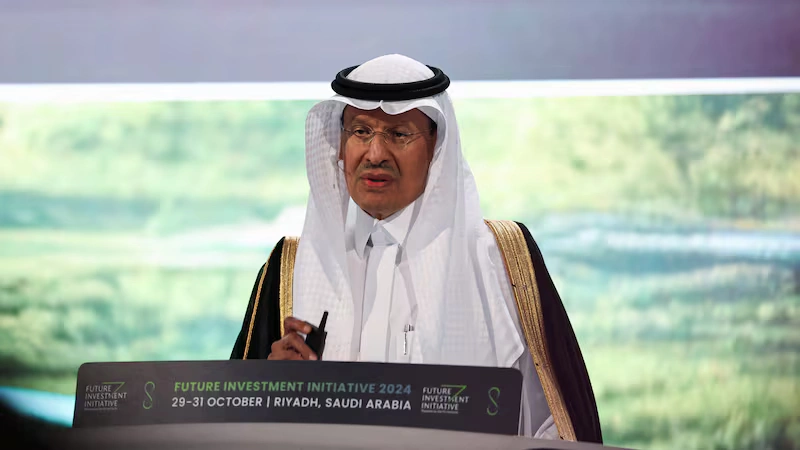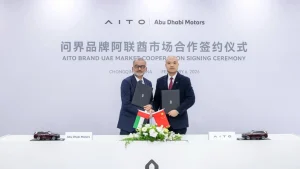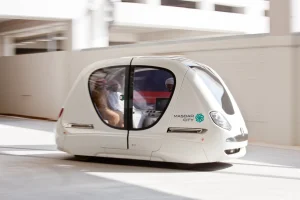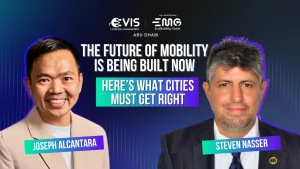According to National News —Saudi Arabia is taking a phased and strategic approach to establishing its carbon market, aligning its framework with the kingdom’s economic and energy priorities. Speaking at the Future Investment Initiative conference in Riyadh, Prince Abdulaziz Bin Salman, Minister of Energy, said the country’s roadmap for an emissions compliance system will include a two-to-three-year pilot phase to ensure regulations are tailored to Saudi Arabia’s unique economic landscape.
“We learnt from everybody’s problems and mistakes. I will give it to the EU that they had the start, but they had a very tough start,” Prince Abdulaziz said. “So, learning from what everyone else went through, we wanted to take our time to ensure that regulations and structures should first be commensurate with our own needs and pertinent to our own economy.”
Saudi Arabia, the world’s largest oil exporter, is investing in voluntary carbon markets as part of its strategy to achieve net-zero emissions by 2060 and diversify its economy. In 2022, the Public Investment Fund and the Saudi Tadawul Group established the Regional Voluntary Carbon Market Company (RVCMC), which conducts carbon credit auctions and supports corporate decarbonisation. The RVCMC is set to launch a voluntary exchange platform during COP29 in Baku, Azerbaijan, further cementing the kingdom’s role in the global carbon economy.
Prince Abdulaziz said the carbon market is part of Saudi Arabia’s broader transition strategy, which balances energy security, economic diversification, and environmental stewardship. “We’re transitioning with a purpose … and we’re trying to export all forms of energy. We’re trying to use our carbon economy as an approach to give us guidance on where we are going to go,” he noted.
Green Hydrogen Leadership
The minister also highlighted the kingdom’s growing green hydrogen portfolio, led by Saudi Aramco and SABIC. “They’re touring everywhere on planet Earth marketing [green] hydrogen [and there is] still some capacity to sell,” he said. “We also want to make sure that hydrogen can be used and [made] available in Saudi Arabia for those who want to come and invest here in hard-to-abate sectors.”
Saudi Arabia aims to produce 2.9 million tonnes of green hydrogen annually by 2030, scaling up to 4 million tonnes by 2035. At the core of this ambition is the $8.4 billion NEOM Green Hydrogen Project, which will begin operations in 2026 and produce 600 tonnes of hydrogen per day—cutting up to 5 million tonnes of carbon dioxide emissions annually.
Balancing Energy Transition with Oil Investments
Despite its decarbonisation efforts, the kingdom remains committed to maintaining its crude production capacity at 12.3 million barrels per day. Prince Abdulaziz defended continued investment in oil and gas, explaining that new projects are needed to offset natural declines from existing fields.
“There is something called natural declines, and if you don’t attend to that, you lose over time,” he said. “That’s why you see Aramco investing a lot in China, and will be investing a lot everywhere else … because we would like to continue monetising our hydrocarbons.”
Aramco Chief Executive Amin Nasser added that the global oil market remains “balanced” despite economic headwinds, predicting 1.5 million barrels per day of demand growth in 2025, driven by China’s petrochemical sector.
A Hub for Sustainable Data Centres
Saudi Arabia is also positioning itself as a global hub for energy-efficient data centres, leveraging its low-cost and renewable energy mix. “We have seawater for cooling, and if you see the cooling system for data centres, Saudi Arabia is going to be the [most] competitive and [also in terms of] energy use,” said Mohammad Abunayyan, Chairman of ACWA Power.
Electricity costs in the kingdom stand at 4.8 cents per kWh for gas-generated power and 2 cents per kWh for renewables, offering one of the world’s most competitive energy landscapes for digital infrastructure development.
As Saudi Arabia advances its carbon market, green hydrogen strategy, and clean energy ecosystem, EVIS Abu Dhabi 2026 and Eco Mobility Global 2026 will continue to showcase such transformative regional efforts driving the global transition toward sustainable energy systems. Join us from October 13–14, 2026 at ADNEC Centre, Abu Dhabi, where leaders, investors, and innovators converge to explore the next era of low-carbon growth and mobility.








